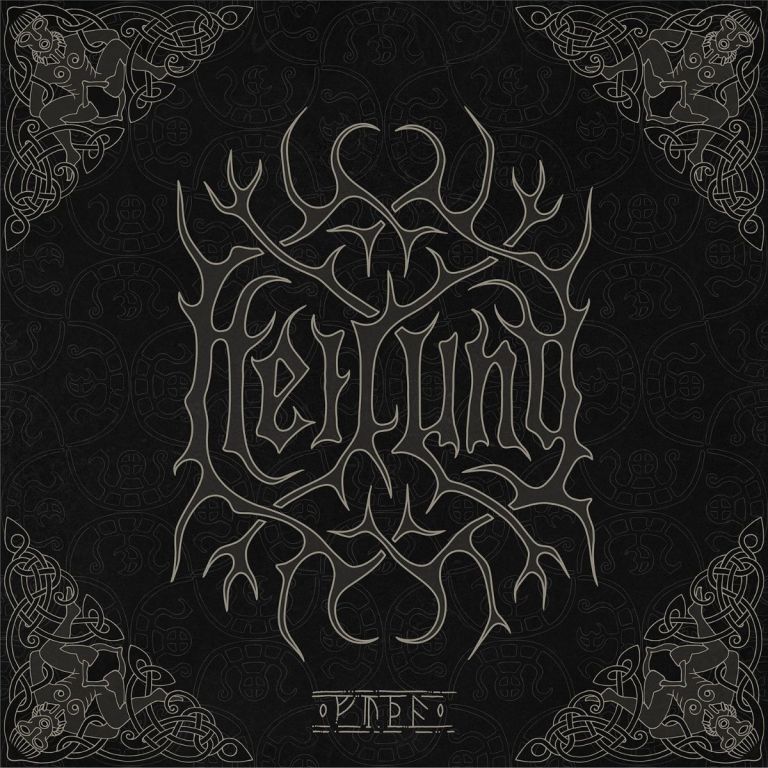
Recenze hudebn├Łho alba
HEILUNG - Futha
Review:When HEILUNG self-released their debut album Ofnir four years ago, the Danish band may not have expected the ground-breaking successes they have had today. Basing their sound off the Northern European Iron age and Viking age, they have managed to create a unique and authentic experience they like to call Amplified History. People globally have been enchanted by the works of HEILUNG since their debut, Futha sets to be no different. When Futha was announced, HEILUNG made the claim that this album would be focusing on a more feminine side of their sound as opposed to the masculinity of Ofnir. This of course on its own is an interesting flip, and allows a certain power to be given to Maria Franz. Her vocals boast an ethereal tone throughout, from the undertones on opening track Galgaldr, the calming Norupo, to the more commanding Svanrand. Whilst there is still masculinity hovering around the album, it is simply passive to the femininity. HEILUNG‘s success is not only down to the stunning craft work that went into Ofnir, it is also down to the band and their ritualistic live performances. Futha throughout sets a tone that will only be pushed further when it comes to their live shows. There is not a moment that falls short of having that spiritual ritual feeling to it, and will of course bring some of their finest performances to date. When it comes to live performances, Hamrer Hippyer and Othan became fan favourites to hear and made it onto the band’s live album Lifa. To notice how a band will work live through a studio recording is one thing, but to turn live sounds into studio is another. After crafting certain atmospheres in a live setting, to have it stripped back and experience it in a completely new way takes skill. HEILUNG have without a doubt perfected their sound, their style, everything about themselves, because how they taken those two prominent live songs and turn them into studio has been done to such a professional standard. At no point was an error of judgement made, and it goes to show that because of their level of high standards and what they do with their sound, live songs were loved enough to be made a permanent fixture in the band’s back-catalogue. Of course to those who haven’t been familiar with HEILUNG over the past couple of years, or the rise of bands who follow a similar suit of incorporating history and nature into their sound such as WARDRUNA, OSI AND THE JUPITER, FORNDOM, and many more, then it might be a little confusing at some points as to what is actually going on. The mostly spoken-work track Vapnatak is one, alongside the harsh growls that fall out of Elivagar, however they are some of the most authentic pieces that a modern-day band could produce in terms of relating to the roots of their sound. What makes Futha special, just like Ofnir is the way the sounds are recorded. There’s no samples being pushed through a laptop, every single sound you hear is done authentically, even to the ice cracks on Elivagar. That authenticity creates a realness to the music, it helps issue a connection with the listener. If it was done via samples then the feeling would of course be stripped away, and everything the band have strived for in their sound would be lacklustre. Futha in itself is undeniably intense, but has a trail of delicacy that follows suit. The ancient worlds that most have forgotten are being kept alive because of artists such as HEILUNG, but what is more outstanding is how they have given us, the listener, the re-ignition of a fire in our souls and given back some of our primal instincts that we have lost over the years. The connection to history and nature is incredibly important, and whether we believe it or not, HEILUNG put us right back in touch with that. Their name translated is Healing, and that is exactly what their sound does. Whether it hits you on an emotional, spiritual, physical level, it heals. Whether you understand it or not, it heals. When talking of the logistics such as the masculine to female sound, a comparison to Ofnir is easy. However to be able to distinguish whether they have upped their game or not is almost impossible. The reason is that throughout each track they have released during their time has been filled with passion and a compelling dedication to the accuracy of what each track is about. No stone is left unturned when it comes to making sure they are getting everything perfect, from the use of natural instrumentation to learning ancient languages. Aforementioned there are many bands and artists out there who are within this realm of ancient-history/nature inspired music, and each one brings something special and unique to the table. Having said this, Futha sets a bar and displays an extraordinary example to the world about unity. Their efforts with this album have been wasted in no way, shape or form, and have taken us on a journey that will hopefully never end. Source: https://distortedsoundmag.com/album-review-futha-heilung/ (rating 10/10)
After the near-instant success of their debut, Heilung have returned with Futha. The band’s music tries to pull the listener into the spirit of Iron Age Northern Europe to a time before the spread of Christianity and Western political ideology. They reflect this by using unconventional song structure, unsettling execution, and maintaining an ancient pagan atmosphere. However, Futha differs from its predecessor in one core way; where the masculine Ofnir took a lot of musical and lyrical inspiration from inscriptions on armor and weapons, the feminine Futha takes from ancient Icelandic poetry and healing spells. Before we dig into the album, let me begin by saying that, if you have neither the time nor patience to listen to this album in its entirety in one sitting, wait until you do. Darker trance music like this is really meant to be listened to all at once, so if you decided to break it into numerous sittings, you’d only be robbing yourself of a phenomenally unique experience. Oh, and it’s even better if you listen to it in the dark. Even among other neofolk bands, Heilung are in a league of their own. Their sound is far more haunting and experimental than bands like Wardruna or Danheim but, as far as melody and droniness go, they sit somewhere between these and the ambient Draugurinn. Furthermore, in Futha, the emotions are amplified to such extremes that you can expect to feel an overwhelming sense of sorrow or despair in a few spots, as well as goosebumps during its intense climaxes. And it’s for this reason that it’s far more difficult for me to review a piece of music like this than it is to review a metal album. This music is about feeling and emotion rather than entertainment, so it almost feels wrong to score it anything other than “Yes, it made me feel,” or “No, it made me bored,”. But, as you can already see, I’m giving it my best shot, so fuck it. Now, let’s look at Futha‘s actual contents. On the low end of things, there are a few purely spoken passages, which unfortunately took me out of the zone a couple times (namely, the demonic speaking in ‘Elivagar’, which brought me out of it twice). They aren’t all bad and they usually do a good job at constructing an atmosphere, but it’s a bit excessive at times. However, this is all more than made up for with the cascade of chanting, passive percussion, and numerous vocal styles such as horrifying growls, throat singing, female vocals, and disorienting shrieks. Every song begins with a low ambiance and then builds upon it with new layers of these different elements like the crescendo of a midnight wind through a primordial forest. (And there it is, ladies and gentlement: the most pretentious simile I’ve ever written.) The key to Futha‘s success lies in its repetition. Its songs don’t often contain more than one or two parts, but the occasional addition (or jarring introduction) of a new part will keep you stimulated while you’re entranced by whatever recurring chant has the stage. All in all, this album made me feel all sorts of weird shit, so I’d say it accomplishes exactly what it sets out to. Not only that, but it does so without me understanding a single fucking word that’s spoken in it, which I would consider a trait of true music. With only two albums to their name so far, Heilung have proven that they are masters at weaving a mesmerizing tapestry and that they aren’t just another tryhard ambient band. Futha is an absolute gift and you owe it to yourself to shut off for a while to listen to it. Source: http://www.metal-observer.com/3.o/review/heilung-futha-review/ (rating 9/10) |
HODNOCEN├Ź90-100% GENI├üLN├Ź!!! 80-89% VYNIKAJ├ŹC├Ź 70-79% DOBR├ē 50-69% PR┼«M─ÜRN├ē 40-49% SLAB├ē 10-39% TRAPN├ē 0-9% HN┼«J!!! |
|
|
 |
|  Blog
Blog E-knihy
E-knihy Filmy
Filmy Foto
Foto Hudba
Hudba Knihy
Knihy Vtipy
Vtipy Statistika
Statistika 

